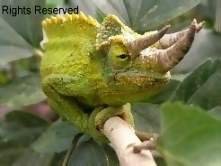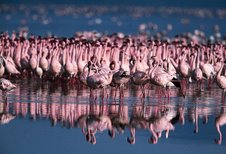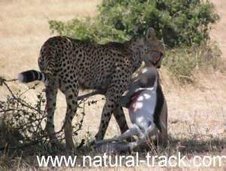Tanzania’s numerous parks and reserves offer many climbing options
for the devoted explorer. The most frequent expeditions are obviously to
Mt. Kilimanjaro and Mt. Meru, but there are other destinations such as
the Crater Highlands. Trekking companies will happily put together an
itinerary that suits your preferences and will help make sure that you
are adequately prepared.
Although Mt. Kilimanjaro tops the list as Africa’s most famous — and
highest — mountain, Tanzania boasts many other mountain ranges and
attractive peaks. Most of the country’s mountains and volcanoes are
located in the north and east of the country. They vary from the
dramatic crater of Mt. Meru and the active volcano of Ol Donyo Lengai to
tamer options like the Usambara Mountains and comparatively gentle
slopes of the Crater Highlands.
Hiking trips and mountain climbing in Tanzania is becoming a
popular option for visitors not content to observe the country from the
back of a game viewing vehicle. Instead, adventurous types are taking
advantage of the many trails and peaks Tanzania has to offer.
Climbing Mt. Kilimanjaro is the best part of most visitors’
experiences in Tanzania. Few mountains can claim the grandeur, the
breathtaking views of Amboseli National Park in Kenya, the Rift Valley,
and the Masaai grassland, that belongs to Kilimanjaro.
Hiking on the ‘rooftop of Africa’ — the highest point on the
continent at 5896 metres — is the adventure of a lifetime, especially
because, if paced well, everyone from seasoned trekkers to first-time
enthusiasts can scale the snowy peak.
Once inside the park, thick lowland forest covers the lower
altitudes and breaks into alpine meadows once the air begins to thin.
Near the peak, the landscape is harsh and barren, with rocks and ices
the predominant features above a breathtaking African view.
Scaling the peak of Mount Kilimanjaro (the highest peak and most
famous mountain in Africa) is a heavy challenge, more from the rigours
of altitude than the actual difficulty of the hike itself. The climb,
which takes on average five days, takes hikers through thick forests and
alpine grasslands, desolate rock-face and brilliant white glaciers.
Views of Kenya and the Masaai prairie, the Crater Highlands, and the
Eastern Arc Mountain Range expand from the summit, and unlike other
comparable peaks, you don’t need ropes or climbing equipment to make it
to the top. As long as you pace yourself and take it easy at high
altitudes, you have every reason to think you can reach the summit.
Climbing Mt. Meru is usually skipped in favour of
its bigger neighbour Mt. Kilimanjaro to the west, but the sheer beauty
and challenge of this three-day climb makes it a must-do for obliging
itineraries. While Kilimanjaro offers the chance to scale to the ‘roof
of Africa,’ its slightly smaller neighbour is certainly not lacking in
adventure.
The early parts of the trail pass through lush rainforests of fig
trees and Columbus monkeys high in the canopy. As you climb higher, the
cloud forest clears in the late afternoon to reveal striking vistas of
Kilimanjaro and the volcano chain on the edge of the Rift Valley. The
last distance before the summit passes over the crater ridge – an
enlivening experience, and not one for the faint-hearted.
Located west of Dar es Salaam, the Udzungwa Mountains
rise up from the western edge of the famous Selous Game Reserve. Views
from the peaks of the mountains, towards the Selous Game Reserve and the
distant Indian Ocean coast, are incredible and well worth the effort.
The Mountains offer you the opportunity to view several species of primates and endangered birds in a beautiful African rain forest. Five distinct trails cover the forests and mountain peaks within the park, and offer varying levels of difficulty for everyone from novices to experienced trekkers. Better yet, there are no roads through the Udzungwa Mountains National Park, so hikers have the area all to themselves.
The Mountains offer you the opportunity to view several species of primates and endangered birds in a beautiful African rain forest. Five distinct trails cover the forests and mountain peaks within the park, and offer varying levels of difficulty for everyone from novices to experienced trekkers. Better yet, there are no roads through the Udzungwa Mountains National Park, so hikers have the area all to themselves.
The Ngorongoro Conservation Area and the Crater
Highlands offers hikers the chance to experience an extended piece of
the country on foot and up-close. Longer hikes start around Ngorongoro
Crater and pass through smaller craters and summits on the way,
finishing at Lake Natron with a hike to the crater of the active volcano
Ol Donyo Lengai.
The trip can be divided into smaller sections, but the full
experience of walking through the highlands is really not to be missed.
Rising up from the floors of the Rift Valley, the Crater Highlands form a lush chain of mountains and volcanoes that includes the Ngorongoro Conservation Area and the surrounding Masaai tribal lands. Hiking safaris take you from Ngorongoro Crater to the foot of Ol Donyo Lengai and offer you a chance to see some of the most spectacular and stunning scenery in Tanzania.
Rising up from the floors of the Rift Valley, the Crater Highlands form a lush chain of mountains and volcanoes that includes the Ngorongoro Conservation Area and the surrounding Masaai tribal lands. Hiking safaris take you from Ngorongoro Crater to the foot of Ol Donyo Lengai and offer you a chance to see some of the most spectacular and stunning scenery in Tanzania.
Exploring this little-visited wilderness is well worth putting in the list of ‘to do’.
PKP. safaris in kenya desk








